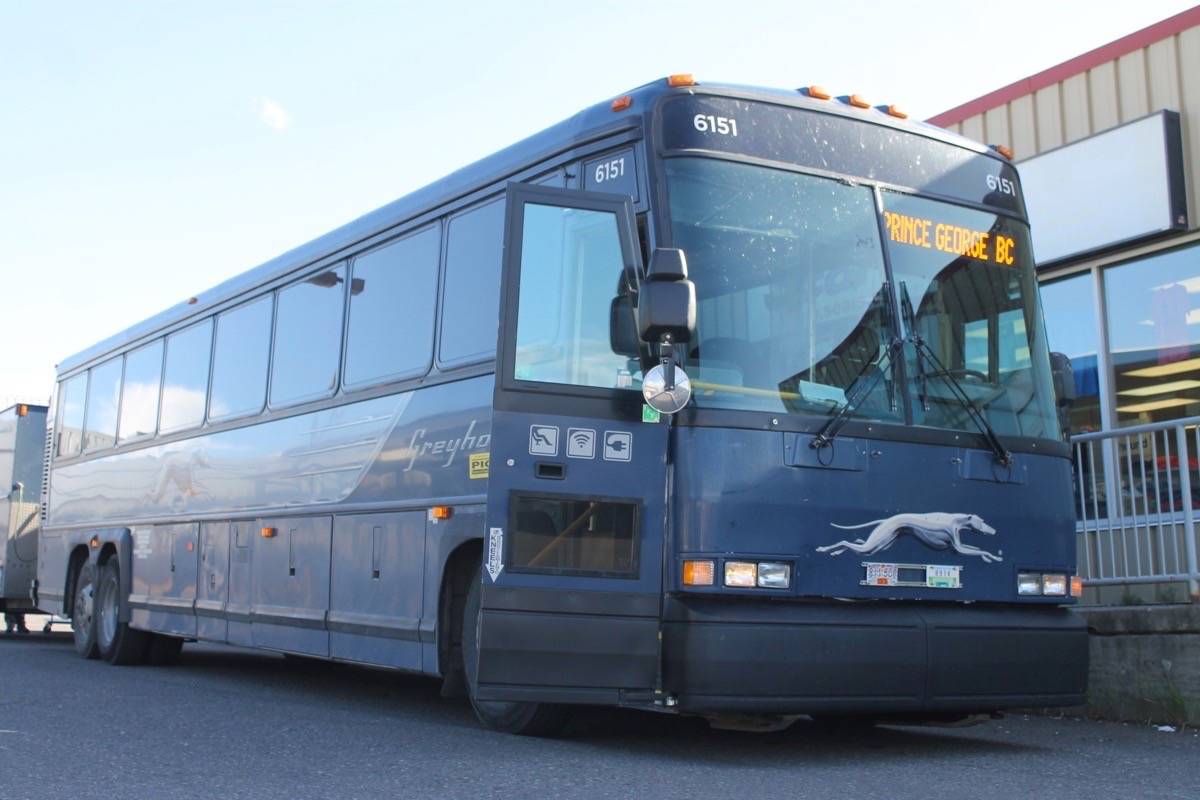The Passenger Transportation Board approved Greyhound’s proposal to eliminate nine routes across B.C. on Wednesday.
The bus company has said it can no longer subsidize losses on unprofitable routes with revenue from the more profitable routes in the province.
In a decision posted online, the board said it can’t force a private business to suffer “significant financial losses indefinitely.”
“Greyhound said that if it eliminates 1.6 million scheduled miles, it can continue to provide 3.7 million scheduled miles of passenger bus service in central and southern B.C.,” the decision reads.
#BREAKING: Passenger Transportation Board approved @GreyhoundBus eliminating 9 routes across B.C., citing 30% ridership decrease along these routes = $35,000/day loss. Routes to be gone as of May 31: pic.twitter.com/wraqThpjqE
— Ashley Wadhwani (@ashwadhwani) February 21, 2018
Greyhound has said the nine routes set to be eliminated by June 1 have dropped 30 per cent in ridership over the last five years, amounting to a loss of $35,000 per day, or $70 million over six years.
The company will also reduce the number of round trips and eliminate stops along 10 other routes, including from the Interior to Lower Mainland, Fort Nelson to the Yukon border, and Prince George to the Alberta border. These routes will go down to two round trips per week in the coming days.
“We regret having to do this and appreciate the board’s acknowledgement of the difficult circumstances under which we’ve been operating over the past several years,” Stuart Kendrick, Greyhound’s senior vice president, said in a statement.
Decision causes concern for safety
Since Greyhound’s proposal was made public late last year, community leaders in the north have voiced concern over safety and affordability for those needing to travel along the highway routes.
The transportation board held three community forums in cities that would be affected last December. Members heard from people who said transportation is fairly limited, with flights typically more expensive and Via Rail inconsistent.
Port Edward Mayor Dave MacDonald told Black Press Media last week a group of basketball students travelling to Prince George was stranded on a train for 27 hours, calling the service unreliable.
Smithers Mayor Taylor Bachrach said some people may have to take unsafe measures once the cuts are in place.
“They’re going to find another way to get to where they need to go,” Bachrach said. “And for some folks, that will involve hitchhiking.”
Highway 16, also known as B.C.’s Highway of Tears, has been linked to the disappearance of several aboriginal women along its 720 kilometres between Prince George and Prince Rupert.
However, Gladys Radek, whose niece Tamara Chipman went missing 12 years ago on Highway 16, didn’t appear to be missing the Greyhound service.
“The bus comes here really early in the morning or late, late, late at night,” Radek said, adding that it’s also expensive. “That’s why a lot of people haven’t used it.”
She pointed to safer and more affordable alternatives, such as a $5 round-trip bus connecting Prince Rupert and Terrace operated by not-for-profit groups.
Greyhound calls for federal, provincial solution
The transportation board’s decision says Greyhound must continue the nine routes until June 1, to allow time for private companies to propose alternatives.
The bus company has also renewed its call for a “sustainable intercity bus service,” to be funded as a federal and provincial subsidy with private operators and municipalities.
Mayor Bachrach said he’s already spoken with Transportation Minister Claire Trevena about the gap these soon-to-be-empty routes will leave.
In a statement Wednesday, Trevena called the board’s decision “disappointing,” and one that will leave some people vulnerable.
Trevena added she’ll be speaking to community and First Nations leaders to ensure safe, reliable and affordable long-haul transportation remains in place for those who depend on it.
@ashwadhwani
ashley.wadhwani@bpdigital.ca
Like us on Facebook and follow us on Twitter.



